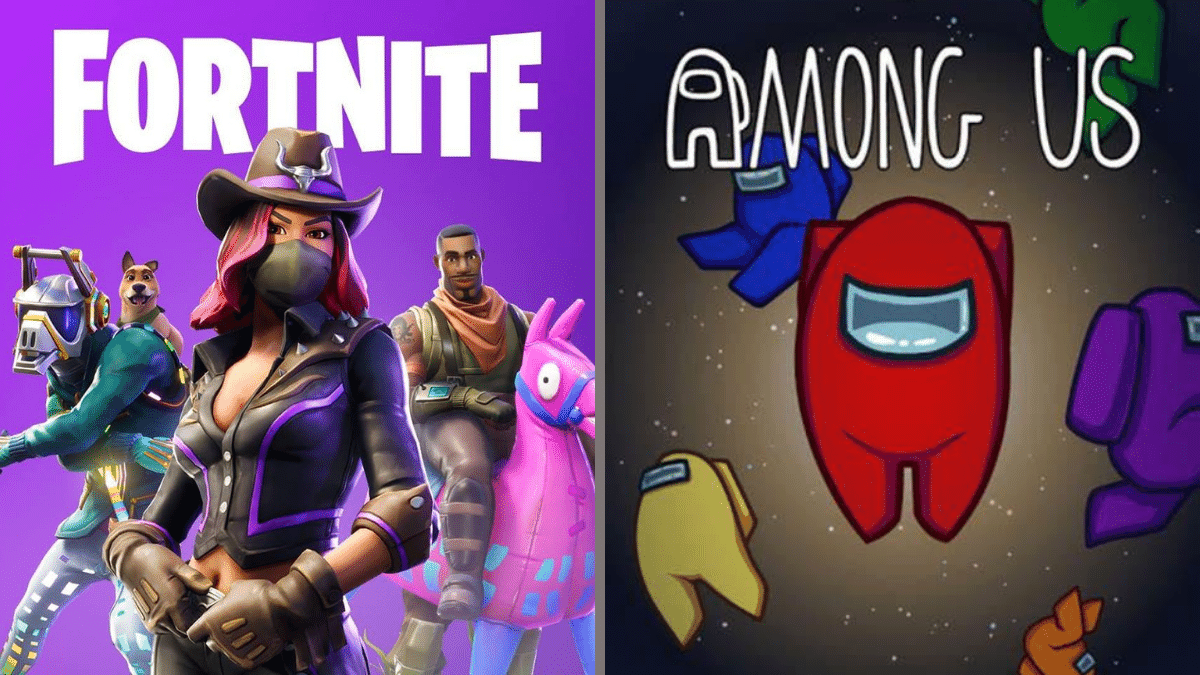Did Fortnite Plagiarize Among Us?

Yesterday, Epic Games, the company behind the wildly-popular game Fortnite, announced the launch of a new game mode for its crown jewel: Imposters
However, almost immediately after the new mode was announced, gamers began to draw similarities and comparisons to another extremely popular video game, Among Us.
For gamers and journalists, the similarities were obvious. Both games put a team of players and gave them a series of tasks they had to complete. However, one to three of the players are “Imposters” (the same term is used in both games) that attempt to murder the non-imposters before time is run out.
The objective for the imposters is to kill everyone while escaping detection while, for non-imposter players, the goal is to either identify the imposters and eject them or complete all the required tasks.
Though originally released in 2018, Among Us became wildly popular during the pandemic, with streamers and gamers alike discovering it and enjoying both the cartoonish art style and the intrigue of trying to suss out who the imposters are.
But if imitation is the highest form of flattery, Innersloth, the small company behind Among Us, doesn’t feel very flattered.
Victoria Tran, the community director at Innersloth, posted to Twitter that, “It would have been really, really cool to collab.”
Gary Porter, a developer for Among Us, also pointed out similarities between the map used in Imposters and the original map in Among Us. He was backed by another Twitter User, Stephen N. Parker, who highlighted just how similar the two maps are.
To make matters worse, it appears the team at Innersloth had been trying to collaborate with Epic Games for some time. However, despite countless collaborations with other games and artists for Fortnite, Epic choice to release Imposters without as much as a warning to the Among Us team.
But did Epic Games act inappropriately? Did they go too far when pulling from Among Us for Imposters? To answer that, we have to look at the complex history of Fortnite and Epic Games more broadly.
A Long History of Copying

Epic Games first released Fortnite in July 2017 as an early access game. However, at the time, the only mode was the Save the World mode, a cooperative shooting game for up to four players.
Though popular, its success was being overshadowed by a game named PlayerUnknown’s Battlegrounds (PUBG), which had innovated the “Battle Royale” style of shooter where dozens of players competed until only one was alive.
This prompted Epic to release Fortnite Battle Royale, its battle royale mode that was also free-to-play. This enabled Epic to beat PUBG to many platforms and largely supplant the game as the dominant battle royale shooter.
However, Forrnite’s take on the battle royale genre was very different from PUBG. Where PUBG aimed to be a more realistic shooter, Fortnite’s aesthetics were cartoonish and Fortnite also integrated a construction mechanic that radically changed the way the game was played.
Still, that didn’t stop many from accusing Epic games of ripping off PUBG. Most notably, that included the PUBG Corporation, which filed a lawsuit against Epic Games in May 2018 for alleged copyright infringement. However, the lawsuit was quietly settled just months later, with many noting that both companies are partially owned by Tencent Holdings as a possible explanation for the quick end.
However, it wasn’t the end of Epic Games’ issues with copying. As 2018 rolled on, various dancers and choreographers also began to sue Epic over alleged infringement of their routines. This included actor Alfonso Ribeiro and the rapper 2 Milly among others.
At least five of those lawsuits were dismissed by March 2019 due to the lack of a proper copyright registration.
None of this has stopped Fortnite from becoming both a gaming juggernaut and a cultural phenomenon. In 2019, it was estimated to have made $1.8 billion for Epic Games.
However, this story may be different. Though Epic Games has long been heavy-handed with its copying in Fortnite, this story seems to have upset not just the developers and creators, but the gamers.
When you look at the details, it’s easy to see why.
Among Us or Against Us
To be clear, Innersloth did not invent the idea of trying to determine who is a secret spy in a game. Many board and video games had played with similar concepts long before them.
However, even with that said, Among Us is still a unique experience. It’s sci-fi setting, cartoonish graphics, unique terminology and other elements made the game a cultural phenomenon all its own.
When Fortnite famously copied PUBG, it was largely copying mechanics only, and it was doing so from a competitor that, at the time, was seen as an equal. PUBG and Fortnite share mechanics, but feel like extremely different games. With Among Us, Epic is a mammoth company that is copying from a small independent developer and does so in a way that copies not just mechanics, but terminology, and much of the look and feel of Among Us.
While it is true that Fortnite: Imposters is a 3D game where Among Us is two-dimensional, the cartoonish artwork of both, the similar maps, the nearly identical structure and other similarities make the two games feel very similar.
It appears to me, as well as many others, that Epic Games went well beyond copying mechanics and tried to specifically copy the Among Us experience. Rather than creating their unique take on the Among Us format, they tried to emulate what Among Us did in their 3D world.
To be clear, this doesn’t mean that a copyright infringement or other lawsuit is coming. One cannot copyright protect a game mechanic and since no artwork or code is shared between the two projects, there’s likely little Innersloth can do. While there are other similarities, those are likely not protectable either.
Epic Games was cautious to try to recreate Among Us as best they could without violating Innersloth’s copyrights, trademarks or other intellectual property. Their copying is flagrant, but unlikely to be illegal.
Ultimately, this one is up for the fans to decide. Fans made Fortnite the dominant force that it is, and fans can take it away. However, we’ve seen time and time again that gamers don’t hold studios accountable when they do bad things, even things much worse than copying.
In the end, Tran may be right, there may be very little that they, or anyone else, can really do.
Bottom Line
One of the things that makes this issue so vexing and so frustrating is that Epic Games has been infamously very aggressive in protecting its own rights. Whether they’re suing Apple over App Store policies, suing a Chinese company for sounding too much like their “Unreal” brand or suing alleged Fortnite cheaters, Epic Games has a long history of protecting what it sees as its rights.
However, when it comes to other people’s creations, it’s perfectly happy to copy mechanics, dances, maps and more as long as, in their view, it doesn’t cross the line into infringement.
While Epic may not have done anything illegal, it certainly has not made itself look good. Fortnite is no longer the plucky upstart, it’s a multi-billion dollar behemoth, and it’s copying from a well-loved, small, independent developer.
If Epic had just agreed to collaborate with Innersloth on this project, it could have been a boon for both companies. Instead, they just decided to take what they felt they could without as much as a warning, creating a dark cloud that hangs over what should have been a great new release.
Ultimately, the fans will likely decide this case, not the courts. The outcome, however, will likely set the tone for the video game industry for decades to come and go a long way to determining what the ethical boundaries are for copying in video games.
Want to Reuse or Republish this Content?
If you want to feature this article in your site, classroom or elsewhere, just let us know! We usually grant permission within 24 hours.
